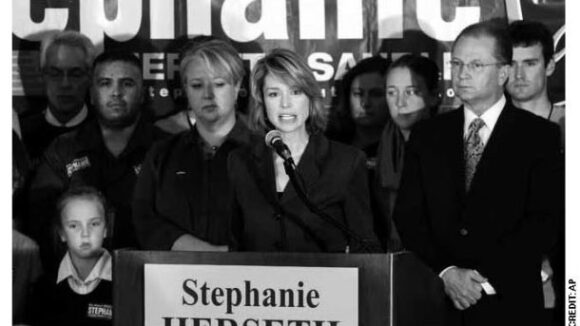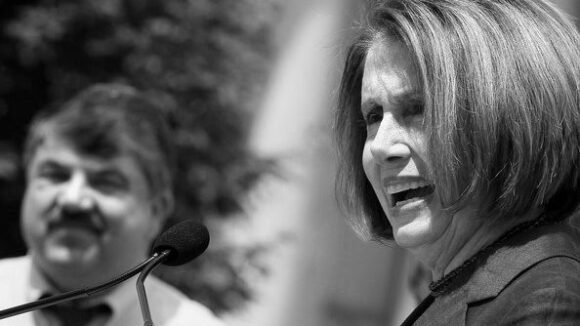Federal Candidate Survey Mobilizes Millions
(Source: December 2010 NRTWC Newsletter) The Committee's federal survey program ensured that politicians like the supposedly "independent" U.S. Rep. Stephanie Herseth Sandlin (D-S.D.) were held accountable for their votes to expand Big Labor's forced-unionism privileges. Program Maximizes Right to Work Gains in 'Year of Opportunity' Thanks to National Right to Work Committee members' generous assistance, the Committee's federal-candidate Survey 2010 checked a massive Big Labor electioneering blitz and sharply increased support in Congress for repeal of federally-imposed forced union dues. To mobilize Right to Work supporters, the Committee distributed a record-smashing total of nearly 8.4 million federal candidate Survey "information packets" through the U.S. Postal Service this year. Above and beyond that, the 2010 program had a massive Internet component, including nearly half a million e-mails transmitted in October alone. All this plus radio, TV, and newspaper advertising. The packets, e-mails and ads let pro-Right to Work citizens know where their candidates stood on compulsory unionism. And most of the packets were mailed out during the during the last five weeks of the general election campaign to specifically targeted states and districts across the country. In a year in which voters were already extremely concerned about Big Labor encroachment of employee freedom and destruction of private-sector jobs, the fall program maximized Right to Work gains in both the U.S. House and the U.S. Senate. Pro-Right to Work Candidates Won in 76 of 106 Targeted Congressional Contests Compared to the House that will permanently disband after a December "lame duck" session, the House that convenes in January will have 55 more members identified, based on their campaign pledges and voting records, as 100% Right to Work supporters. In the Senate, where just 37 out of 100 seats were up for election this year, compared to 435 out of 435 House seats, Right to Work reaped a net gain of five seats.


